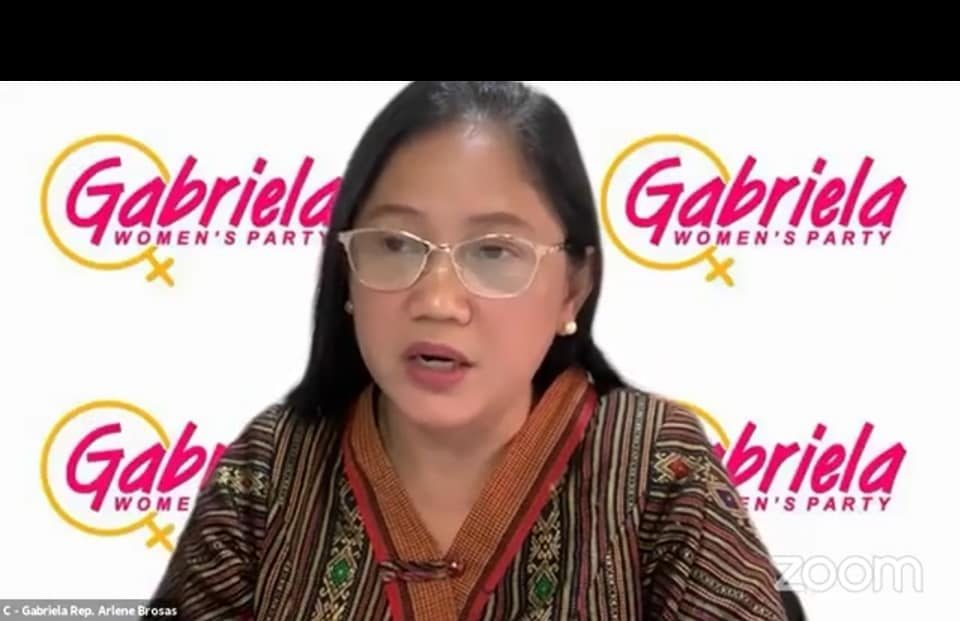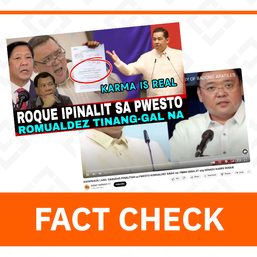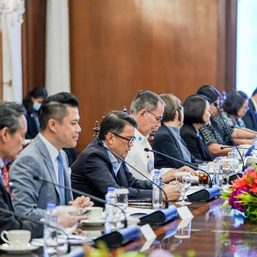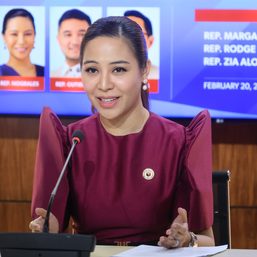SUMMARY
This is AI generated summarization, which may have errors. For context, always refer to the full article.

Apart from the P28.1 billion proposed for an anti-communist program, another P10 billion in the proposed 2022 budget could go to local government units (LGUs) at the discretion of the Duterte administration.
Gabriela Partylist Representative Arlene Brosas flagged this fund, called the Growth Equity Fund (GEF), as she questioned the Office of the President’s (OP) proposed 2022 budget at the plenary on Thursday, September 30.
The P10-billion fund is not included in the OP budget. Rather, it’s identified as a special purpose fund under the Local Government Support Fund.
“Paano po matitiyak na hindi ito gagamitin sa pamumulitika at eleksyon kung hindi klaro ‘yung mechanics ng paggamit ng pondo?” she asked OP budget sponsor and Zamboanga del Norte 1st District Representative Romeo Jalosjos Jr.
(How can we make sure that these funds will not be used for partisan politics and elections if the mechanics on how to use the funds are unclear?)
What is the Growth Equity Fund?
According to the 2022 National Expenditure Program, the P10-billion GEF “shall be used as financial assistance to the identified poor, disadvantaged, and lagging LGUs for the implementation of various infrastructure projects to gradually enable the full and efficient implementation of the functions and services devolved to the local government.”
The GEF was created by Duterte’s Executive Order (EO) No. 138, which orders the national government to fully devolve functions related to the delivery of basic services to local governments following the 2018 Mandanas ruling.
This Supreme Court decision ruled that local governments are entitled to a share of all national taxes, not just the national internal revenue taxes. Thus, LGUs are supposed to get bigger budgets in 2022, which, to the national government, means they should be in charge of more things.
But there are very poor municipalities that, even after getting a bigger share of taxes, will not be able to keep up with the added functions. Duterte’s EO thus created the GEF, which provides additional funding to these poorer local government units.
‘Presidential pork’
But Brosas likened the GEF to “presidential pork” because it appears it is up to the Duterte administration which local governments will get a slice of the funds, and there appears to be no list yet of which specific municipalities will benefit.
She also branded it the “greater electoral fund” since it is being requested for use in 2022, an election year.
Amid her grilling, Jalosjos said the GEF is under the budget of the Department of the Interior and Local Government.
Asked how the governmment would decide which LGUs will get the funds, he said the decision would be based on guidelines to be issued by the Development Budget Coordination Committee (DBCC).
The DBCC is chaired by the budget secretary and counts as its members the Office of the President, the Department of Finance (DOF), and the National Economic and Development Authority (NEDA).
What do government issuances say?
The DBCC guidelines are supposed to ensure that the allocation and distribution of the GEF to poor LGUs is “equitable, performance-based, and time-bound,” according to the implementing rules and regulations (IRR) of Duterte’s EO.
But it’s another body that will oversee how the GEF is spent, based on the IRR.
These rules state that an “Inter-Agency Steering Committee” composed of the Department of Budget and Management (DBM), DILG, DOF, and NEDA is supposed to do the overseeing and then report to the ComDev on all “policies, decisions, and actions relative to the equity grants extended to marginalized local governments.”
Jalosjos said it’s the DBM that has the list of LGUs that will receive the GEF, as well as more specific criteria on how the GEF is to be distributed. – Rappler.com
Add a comment
How does this make you feel?



![[OPINION] The First Mode conundrum](https://www.rappler.com/tachyon/2024/03/tl-first-mode-conundrum-03232024.jpg?resize=257%2C257&crop=283px%2C0px%2C720px%2C720px)

There are no comments yet. Add your comment to start the conversation.